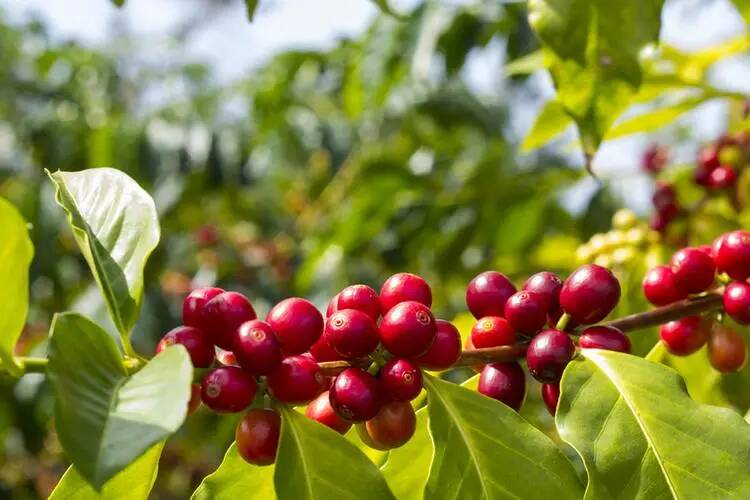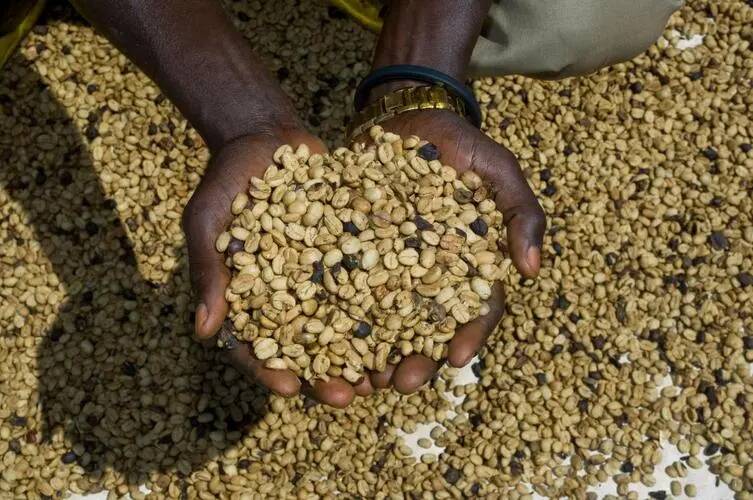The weather affects coffee production in African countries, and new EU rules make it difficult for importers to import African coffee beans.
Coffee production in Africa has declined due to the El Ni ñ o phenomenon. Earlier, many coffee-producing countries in Central America were affected by El Ni ñ o, resulting in severe weather such as droughts or floods. In particular, coffee production in Brazil and Colombia has been affected.
African countries are also affected by the weather. According to state regulators, Uganda's coffee exports fell 4.8% in November from a year earlier, due to heavy rains, which delayed harvesting and disrupted the drying process, Reuters reported. The Ugandan Coffee Development Agency (UCDA) said in a report that the total amount of goods was 425525 bags (60 kg / bag). Uganda is the largest exporter of coffee in Africa, followed by Ethiopia, where income from coffee crops is the main source of hard currency, earning nearly $1 billion a year from coffee exports.

Earlier, the EU issued the EU deforestation regulations (EUDR), which stipulates that no individual or enterprise can sell products related to deforestation, including coffee and cocoa, in the EU market. The bill requires operators to conduct due diligence on their products and trace the origin of the goods they sell to determine that they are not involved in deforestation or cause forest degradation, otherwise they will face a series of penalties such as fines, restrictions or export bans.
As a result, companies importing coffee beans from the European Union have recently begun to reduce their purchases by small farmers from Africa and elsewhere, mainly because of the European Union deforestation regulations (EUDR). The law forbids the sale of goods related to forest destruction. According to industry sources, it will be more expensive and difficult for African countries to comply with EU deforestation regulations (EUDR).
Coffee orders from Ethiopia, where about 5 million farmers depend on coffee crops, have dried up in recent months. The procurement strategy adopted by companies before the law may increase the poverty of small-scale farmers and raise prices for EU consumers, while undermining the EU's reduced impact on forest protection.
An importer executive said that there is no way to buy large quantities of Ethiopian coffee in the future because the coffee beans ordered now have been certified and can enter the coffee products sold in the European Union in 2025. Although the final implementation of the law has not been finalized, it must now meet the requirements of the EU deforestation regulations (EUDR).

Important Notice :
前街咖啡 FrontStreet Coffee has moved to new addredd:
FrontStreet Coffee Address: 315,Donghua East Road,GuangZhou
Tel:020 38364473
- Prev

What is the meaning of 74110, 74158 and other digital beans in Arabica coffee beans?
Among thousands of different kinds of coffee beans, it is inevitable that some beans have special names! Unlike most beans, such as bourbon and tin pickup, they have conventional names, but like secret spies, they have their own numbers. (upper left corner) for example, beans named with letters and numbers
- Next

Oceania island Papua New Guinea Coffee producing area, Coffee grading, introduction to Bird of Paradise Coffee
Papua New Guinea-the largest island country in the South Pacific and the second largest island in the world. Independent State of Papua New Guinea (PNG), which borders Indonesia in the western part of the country, belongs to
Related
- What grade does Jamaica Blue Mountain No. 1 coffee belong to and how to drink it better? What is the highest grade of Blue Mountain coffee for coffee aristocrats?
- What are the flavor characteristics of the world-famous coffee Blue Mountain No. 1 Golden Mantelin? What are the characteristics of deep-roasted bitter coffee?
- Can I make coffee a second time in an Italian hand-brewed mocha pot? Why can't coffee be brewed several times like tea leaves?
- Hand-brewed coffee flows with a knife and a tornado. How to brew it? What is the proportion of grinding water and water temperature divided into?
- What is the difference between Indonesian Sumatra Mantinin coffee and gold Mantinin? How to distinguish between real and fake golden Mantelin coffee?
- What does bypass mean in coffee? Why can hand-brewed coffee and water make it better?
- Unexpected! Ruixing Telunsu lattes use a smoothie machine to foam milk?!
- % Arabia's first store in Henan opens into the village?! Netizen: Thought it was P's
- Does an authentic standard mocha coffee recipe use chocolate sauce or powder? Mocha Latte/Dirty Coffee/Salty Mocha Coffee Recipe Share!
- What is the difference between Vietnam egg coffee and Norway egg coffee? Hand-brewed single product coffee filter paper filter cloth filter flat solution!

